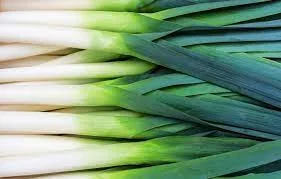What fruits and vegetables give you energy?
Clementine
With only 70 kcal for 2 fruits, clementine is a flagship food of the season! Its various properties make it an excellent fruit for health. The flavonoids, limonoids and carotenoids it contains are compounds whose antioxidant power has been recognized. Clementine thus helps protect against diseases such as certain cancers, cardiovascular diseases or degenerative diseases (eg Parkinson's). Carotenoids are also essential for the production of vitamin A, as the body converts them into this vitamin as needed. Clementine also provides an important source of vitamin C, known for its anti-fatigue and stress-relieving effect, and which helps stimulate our immune system.
Pomegranate
One pomegranate, a fruit with a tangy taste, is equivalent to about 128 kcal. Its juice contains a large number of antioxidants beneficial to the prevention of many diseases, including prostate cancer. It protects against atherosclerosis (= deposit of fat on the arterial wall) and cardiovascular diseases since it increase the antioxidant activity of the blood.
Pomegranate also has anti-inflammatory, antibacterial and antiviral properties, ideal for helping the body fight, especially when temperatures start to drop, against the little winter ailments.
Jerusalem artichoke
Jerusalem artichoke is a root vegetable also known as Canadian truffle. Low in calories with only 72 kcal per 100 g, it has interesting properties for health. Jerusalem artichoke contributes to gut health, in particular thanks to its content of fructans, a carbohydrate that contains inulin, a mixture of polysaccharides. These fructans help relieve constipation and have the advantage of balancing the intestinal flora.
Finally, the inulin in Jerusalem artichoke helps the absorption of calcium and magnesium, minerals essential for the prevention of osteoporosis. Tip: if you don't know how to cook it, know that it can be eaten raw, grated on a salad for example, or baked, in the oven, sautéed in a wok or in a soup.
Leek
Leek is a vegetable from the lily family, of which onion and garlic are also part. Very low in calories with around 60 kcal per 100 g, the leek is a healthy ally that will go perfectly into your soups. It contains an antioxidant from the flavonoid family, kaempferol, which protects against damage caused by free radicals and gives leek anti-cancer properties. Finally, leeks have the advantage of being an important source of vitamins and nutrients. It contains vitamins A, B6 and B9, C, as well as copper and iron.
kiwi
The kiwi is arguably one of the most consumed fruits in autumn and winter. A kiwi (90 g) represents only 56 kcal, but above all 2.7 g of fibre, that is to say a very significant amount. Fibre, in addition to facilitating intestinal transit, regulates blood sugar and cholesterol levels. Kiwi fruit also provides 70 mg of vitamin C, knowing that the recommended daily intakes are around 90 mg for a man and 75 mg for a woman in Canada, and around 110 mg for an adult, in France. Tip: eat two kiwis a day, in the morning, to replenish vitamin C and to enjoy its benefits throughout winter!
pineapple
Pineapple belongs to the bromeliad family. Rich in fibres (cellulose), it facilitates intestinal transit and helps fight against chronic constipation. It also contains polyphenols which, associated with vitamin C and beta-carotene, have recognized antioxidant properties and help fight various chronic diseases.
Slimming virtues are also attributed to it because of its bromelain content which does not destroy fat but makes it possible to limit its absorption by the body.
Carrots
Carrots (raw, cooked or in juice) contain carotenoids including beta-carotene, lutein and zeaxanthin. They have antioxidant properties capable of neutralizing free radicals in the body and would allow the body to better fight against certain diseases such as cancer, cardiovascular diseases and certain diseases linked to ageing, in particular cataracts.
In addition, carotenoids can be converted into vitamin A by the body if the body needs them. Vitamin A contributes to the maintenance of mucous membranes, normal skin and vision, and iron metabolism.
Pear
Pear contains phenols with antioxidant power. These substances, especially found in foods of plant origin, can prevent several diseases, including certain types of cancer and cardiovascular disease. Containing fibre also contributes to good digestion. Rich in vitamin C and vitamin K, it strengthens the body's immune system.
To preserve all its benefits, it is better to buy it organic and consume its skin.


















No comments:
Post a Comment